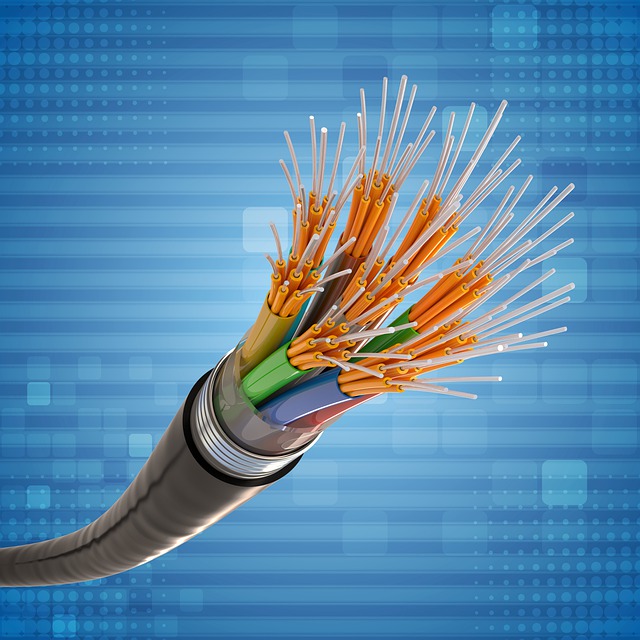There's never a convenient time for your internet to stop working. When this happens, you'll want to troubleshoot the issue quickly to restore your home connection. Unless there is a widespread outage from your internet service provider, fixing the problem and reconnecting is usually a fast and straightforward process.
You will discover the most common reasons that could cause your internet to stop working, along with suggestions on how to fix each issue. For additional Wi-Fi advice, take a look at why your router might be positioned improperly and how you can locate free Wi-Fi no matter where you are.
Why Your Router May be Positioned Incorrectly
Why Your Router May Be Positioned Incorrectly
How to Locate Free Wi-Fi Anywhere Across the Globe
How to discover complimentary Wi-Fi anywhere on the planet
Reasons for home internet service interruptions
Here are some of the main reasons your internet connection may have dropped – we will discuss solutions for each one below.
1. Issues with the modem/router occur.
2. Inadequate speeds or equipment
3. Hacking or network problems
4. Severe weather.
5. Problems with internet service provider outages and network traffic congestion
Narrowing down the specific problem may require some investigation and troubleshooting. Begin by confirming that the connectivity issue is not limited to a particular website, server, or device.
If your Netflix connection cuts out during a show, try accessing other streaming services to check if they are still working. If other services are accessible, the issue may be with Netflix and not your internet. If you can't connect to other streaming services, the problem could lie with the smart TV or streaming device. To confirm if an internet outage is the cause, attempt streaming on a different device, if possible.
<span>Rewritten by an SEO and copywriting expert</span>
When your home internet connection goes out, it is typically because of a problem with your modem and/or router. To fix this issue, you can easily restart your equipment by unplugging it, waiting for about 30 seconds, plugging it back in, and allowing it to reboot. In most cases, this simple solution will resolve the Wi-Fi outage.
When you restart your router, it is best to unplug the power instead of using the buttons on the device. This can result in a hard reset, which will erase your Wi-Fi network settings and revert the router to its factory settings. This reset will likely restore your internet connection, but you will need to set up your Wi-Fi network again.
Please remember that your device might have a battery backup. If the lights on your modem or router stay on even after unplugging it, check for any batteries and temporarily remove them when restarting your device.
Sarah Tew/CNET
Issues with slow speeds or unreliable equipment
Maybe your internet isn't simply "out" — it may just struggle to keep up with the tasks you're attempting or the locations you're accessing it from.
Constant buffering, too much lag, "dead zones" in your Wi-Fi, and other problems with connectivity could be due to not having enough speed, bandwidth, or Wi-Fi coverage for all your devices. To fix this, you can either reduce your internet usage or upgrade your setup.
– Consider the internet speeds required and evaluate if your current plan can provide those speeds. If your plan does not offer the necessary speeds, upgrading to a faster plan, if available, is the recommended solution. Many cable and fiber internet providers provide speeds of up to 1 gigabit per second or more, which is sufficient for the average household.
If you believe that your current plan should be sufficient, it's possible that your equipment may be the issue. Test your internet speeds in various locations in your home to see where the Wi-Fi signal may be weaker. Sometimes, just moving your router to a better location can improve the quality of the connection and reduce any dead zones.
To improve the Wi-Fi signal in your home, consider upgrading to a more advanced router or using Wi-Fi extenders. If you're using equipment rented from a service provider, contact them to inquire about obtaining a better device.
Adjust the settings on your router
Your router should have the capability to direct connected devices to a specific pod or extender, and also between the 2.4GHz and 5GHz bands. The 5GHz band provides a stronger signal, but only if the device is within range (the 5GHz range is shorter than 2.4GHz) and if there are not too many other devices connected to 5GHz. If you experience weak connection quality on a particular device, consider switching bands on the device or moving some devices off the band you are using.
Connect via a wired connection
Using an Ethernet cable to connect directly to your modem, router, or pods/extenders is the best way to establish a strong connection. For devices that use a lot of bandwidth, like smart TVs and gaming consoles, it's recommended to use a wired connection if possible. This not only often results in a better and faster connection but also helps reduce strain on your Wi-Fi network.
James Martin/CNET
A less common but still possible reason for an internet outage is a compromised network. If hackers manage to access your Wi-Fi network, they could block your internet connection from all or some devices.
If you suspect someone has gained unauthorized access to your network, promptly access your router settings and reconfigure your Wi-Fi network, preferably with a different network name and definitely with a new password that is complex or random to hinder hackers.
To prevent hacking attempts, it is important to create a strong password and regularly update the firmware on your router and connected devices. Installing antivirus software can also provide protection for your devices, and many internet service providers offer virus and malware protection at no additional cost.

Mother Nature can disrupt your internet connection. Certain types of connections are more susceptible to outages during bad weather, such as heavy rain, thunderstorms, or thick cloud cover that can interfere with your signal.
Satellite internet is the most prone to internet disruptions due to weather conditions, but any type of connection can be affected by a power outage. Having a modem and router with a backup battery could help you stay online during power outages. However, these backups will not be useful if the power outage is preventing internet service from reaching your modem in the first place.
If you use satellite internet, installing a rain guard, snow shield, or dish heater can help prevent service interruptions caused by inclement weather near your home. While signal interference can occur along the path from the satellite to your dish, heavy cloud cover or rain may affect your connection even if the bad weather is far away. Unfortunately, there is not much you can do to fix an internet outage in this situation; you will have to wait for the signal to come back.
DownDetector/Screenshot by CNET
Outages and congestion in Internet Service Providers
Despite the common negative perception of internet providers, widespread outages are rare, and outages at a single household are almost unheard of (unless payment is missed). However, it is still possible that the provider is experiencing problems.
If your internet connection is down and you've already tried resetting the router, you can check your provider's social media pages, official website, or websites like downdetector.com for updates and reports on outages. Another option is to contact customer service, though be prepared for a potentially long wait on hold.
In the event of your ISP experiencing issues, there is not much you can do except wait for the service to be restored. Outages can harm a company's reputation, so be assured that your ISP is working hard to bring back service promptly.
Network congestion is a common issue that can slow down internet speeds for cable, DSL, satellite, and 5G home internet users. While outages are rare, T-Mobile recognizes that congestion may lead to lower speeds, especially for Home Internet customers during times of heavy data usage.
Network congestion results in decreased speeds reaching your home, leaving you with no option but to wait for the congestion to ease. To maximize the speeds you receive, consider optimizing the placement of your router, adjusting Wi-Fi settings, or using an Ethernet connection.
If your internet is still not working, here are some other activities you can do.
Besides the suggestions mentioned earlier, there are a couple of methods you can try to reconnect online.
Your mobile phone can be used to connect to the internet if your Wi-Fi is not available. However, keep in mind that using your mobile data will be necessary.
Additionally, certain smartphones, network carriers, and service plans offer the option to set up a Wi-Fi hotspot. While not as powerful as a home router, this feature allows you to connect a few devices when your home network is not available.
<p>Another option, especially during longer outages or for urgent internet needs like turning in a school assignment on time, is to look for a public Wi-Fi hotspot. Places such as your local public library, coffee shop, or restaurant may provide free Wi-Fi access. </p>
<span><span>extended period of time without electricity</span></span>
Downtimes extended
Please be aware that connecting to a public Wi-Fi network is less secure than your home network. It's advisable to use a VPN or refrain from any sensitive activities (such as entering passwords, banking information, or doing tasks like taxes) while using a public network.
FAQs about Internet Outages
Why is my internet connection frequently disconnecting?
There are several factors that can impact your internet connection. The most common issue is equipment problems, which can often be resolved by restarting your modem/router.
Other possible reasons for your internet repeatedly going out could be slow speeds, network congestion, and bad weather. It's also a chance that your internet provider is experiencing a service outage, but for frequent interruptions, it's best to check your router first.
Can I receive a partial reimbursement for internet service disruptions?
Many internet service providers offer compensation for extended or frequent outages. For example, Spectrum will give a credit for qualifying outages that last 4 hours or more. If you experience an outage, call to report it and keep track of how long it lasts before asking for a refund.
Will a power outage disrupt my internet connection?
Not always, but most likely. During a power outage, your home may still receive internet service, but you might have limited internet access. If your modem and router don't have battery backups, they will stop working during a power outage, preventing you from connecting to the internet.


























